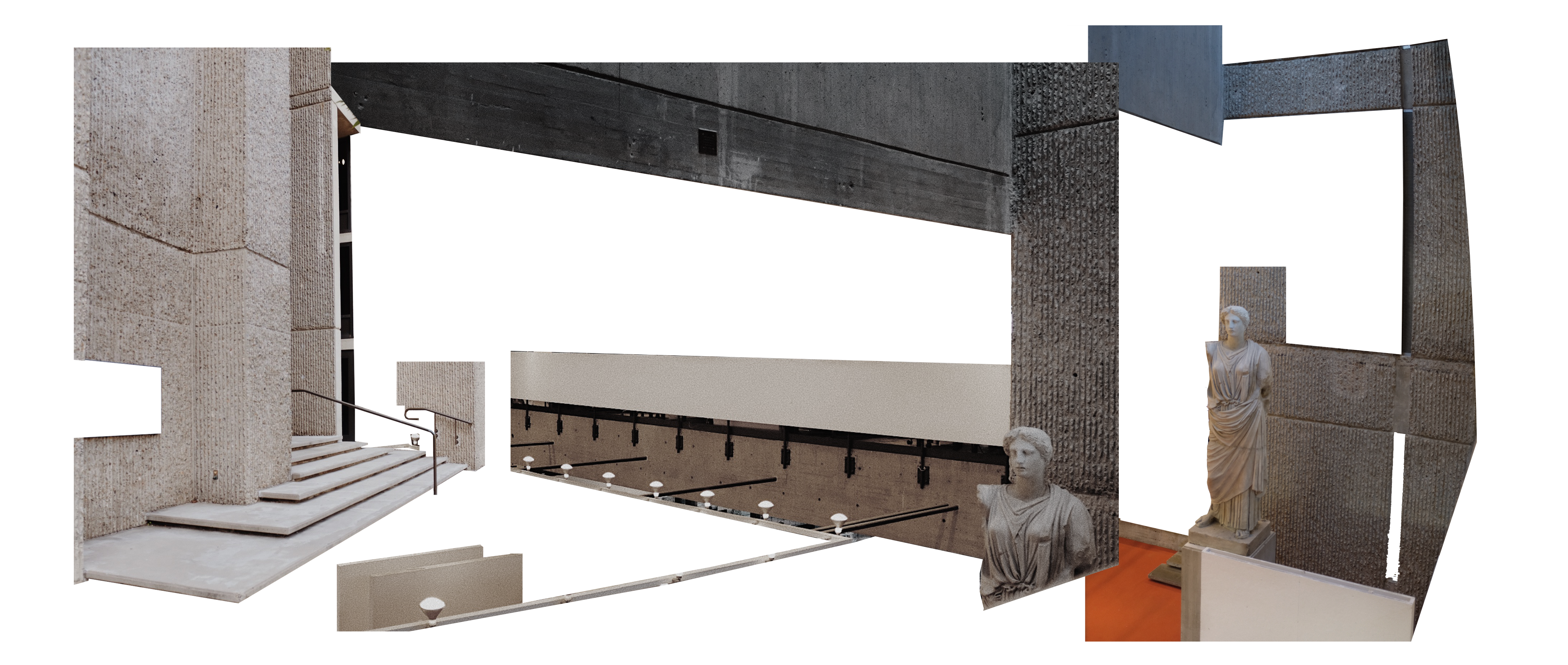The Ghost of Rudolph Hall
Contributor
Life After Love
M.Arch II (2022), currently in New Haven, hailing from LA, originally from Iran. I haven’t tried Sally’s Pizza…wondering why it’s called a pizza?
The feeling of being accepted into Yale was not unlike being on a roller coaster about to take its first dive – the anticipation was thrilling, palpable. The weeks leading up to the start of the semester were filled with new faces and information, a build-up of what was to come. Although most interactions were already on Zoom, there was a certain energy and buzz amongst the students: phone numbers were exchanged, texts were sent, WhatsApp groups were created. Yet when the semester actually started, that anticipation simply turned into an underwhelming plateau. Where did everyone go? Class after class began and ended on Zoom, leaving me back where I started: alone in an empty studio apartment, 5 minutes away from Rudolph Hall. And the much-anticipated post-pro orientation was really just a 30-min Zoom call with university heads, advising me to wear my school-issued lanyard at all times. Feeling nostalgic, I thought back to my time in undergrad, where post-seminar, a lively discussion erupted between students reflecting on what they had just learned. This was not the case here. As my graduate education took flight, I was desperate for [in-person] dialogue with my peers, and often found myself talking with the only thing I could: my house plant.
The new student experience has been a lot of “figure it out yourself.” Despite traveling 3,000 miles over 18 days to get here, it still took me 3 weeks to muster up the courage and visit Rudolph Hall. The slew of color blocks, daily health checks, and security protocols made the building quite intimidating. Aside from the nerves, I sadly realized over the next few weeks that I didn’t have a reason to be there. Were my classmates going to be there? Were my professors? It was exciting to think of meeting new students, whom I imagined were all busily working away in the studio. Every time I visited Rudolph Hall, it was with the hope that a fellow student would be on the 4th floor, and I’d have the chance to make a new friend and discuss my latest book findings. The reality, unfortunately, was quite different. In the eerie quiet of Rudolph Hall, one worries that opening a can of soda may disturb their neighbor (are you still there, dear neighbor?). The building, once known for its bustling sectional quality, is now characterized by echoes of receding footsteps and the warm hums of the 3D printers. Desks were no longer covered with materials, models, and trace paper sketches, but instead, hand sanitizer, antibacterial wipes, and name cards. The 4th floor pit, once the beating heart of Rudolph Hall, was now an empty stage, filled with vacant chairs and bare pin-up boards. I often found myself sitting there, reading my newfound books and listening to the echo of footsteps from the floor above, wondering why a socially-distanced version of badminton couldn’t happen.
Because it really is the chance encounter that makes the studio a desirable place to be. It’s often been said that “you learn more from your peers than your professors.” And in many ways, this is true. Being in a studio environment encourages dialogue between your classmates, and leads to fruitful discussions, even if they’re not always about architecture. Studio culture gives students the flexibility to produce freely, prompting investigations of unknown territories. The studio space functions in many ways like a casino, where time is irrelevant, and there is always a low buzz of activity and energy in the air. (Is architecture really just a high-stakes game we’re all gambling with?). Studio culture unites the students, and through the strength of the collective, we all prevail. So if there was ever a plea needed to #saverudolphhall, the time would be now. As Zoom classes take away the foundation of architectural education, the sense of loss is felt far and wide amongst the students. Now more than ever, students need a collective space to once again engage in dialogue, critique, and chance encounters.
